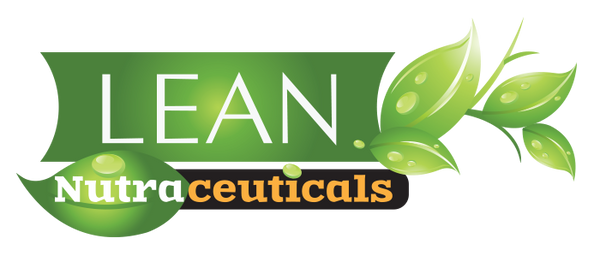
Testosterone Booster: Enhance Vitality and Strength
Testosterone boosters are often marketed as a solution for low energy, reduced strength, and diminished muscle mass. These supplements claim to naturally enhance the body's testosterone levels, potentially leading to increased energy and improved sex drive. Many people seek out testosterone boosters to regain the vitality they experienced in their younger years.
Several ingredients commonly found in testosterone boosters include ashwagandha, vitamin D, and fenugreek, which are believed to support testosterone production. For men experiencing a drop in testosterone, especially those over 50, there are natural ways to help increase levels. Exercise, diet, and sufficient sleep can play critical roles in maintaining optimal testosterone levels.
Products like LEAN Nutraceuticals Natural Testosterone Booster MAX introduce advanced formulations to support overall health, potentially enhancing muscle and blood vessel health. Understanding the science behind these boosters and their ingredients can help individuals make informed decisions about their health and well-being.
Fundamentals of Testosterone
Testosterone is a key hormone that plays a vital role in several bodily functions. This section will cover what testosterone is, its role in the body, and what influences its levels.
What Is Testosterone?
Testosterone is a steroid hormone primarily produced in the testicles in men and in smaller amounts in the ovaries of women. It belongs to a group of hormones known as androgens, which are sometimes referred to as "male hormones" despite being present in both genders.
Testosterone is essential for the development of male primary and secondary sex characteristics. These include the deepening of the voice, development of facial hair, and growth of muscle mass. In addition to its role in puberty, testosterone continues to be important throughout life, helping maintain libido, sperm production, and overall energy levels.
Role of Testosterone in the Body
Testosterone has multiple functions within the body. In men, it is crucial for muscle mass development and the maintenance of physical energy and vigor. It also plays a significant role in sexual function, aiding in sperm production and maintaining an active sex drive.
Besides sexual and physical aspects, testosterone affects mental health and mood regulation. Low levels of this hormone can lead to symptoms like depression, low energy, and disturbed sleep patterns. Furthermore, testosterone helps regulate other hormones like cortisol, which is known as the stress hormone, creating a balance that contributes to overall well-being.
Determinants of Testosterone Levels
Several factors influence testosterone levels. Age is a significant determinant, as testosterone levels naturally decline after the age of 30. Health conditions such as obesity, diabetes, and chronic illness can also lead to lower levels.
Lifestyle choices play a crucial role as well. Poor diet, lack of exercise, and high stress can negatively impact testosterone production. Conditions affecting the testicles can directly reduce testosterone levels. External factors like medications and substances can either enhance or inhibit the production of this crucial hormone. Proper management of these factors can help maintain optimal testosterone levels.
Natural Testosterone Boosting
Testosterone levels can be increased naturally through lifestyle changes, diet, and exercise. These methods promote hormonal balance and improve overall well-being.
Lifestyle Factors Influencing Testosterone
Stress management plays a significant role in boosting testosterone. High stress levels increase cortisol, which negatively affects testosterone. Managing stress through meditation, yoga, or hobbies can keep cortisol levels low.
Adequate sleep is crucial; 7-9 hours of quality sleep helps maintain healthy testosterone levels. Poor sleep disrupts hormone production and may lead to lower testosterone.
Avoiding exposure to estrogen-like chemicals found in plastics can also help. Opt for glass or stainless steel containers when possible to reduce this risk. Reducing alcohol intake is another important lifestyle change to maintain optimal testosterone levels.
Diet and Nutritional Supplements
Diet plays a key role in maintaining healthy testosterone levels. Foods rich in zinc and magnesium are essential. Oysters and pumpkin seeds are excellent sources of zinc, while spinach and almonds provide magnesium.
Vitamin D is crucial, and sun exposure or supplements can help achieve sufficient levels. Fatty fish, such as salmon, and fortified dairy products are good dietary sources of this vitamin.
Certain foods, like garlic and pomegranates, have been shown to have testosterone-boosting properties. They contain nutrients and antioxidants that support hormone production. Considering supplements might also be beneficial. Zinc supplementation can be especially effective for individuals with a deficiency.
Exercise's Impact on Testosterone
Exercise, particularly resistance training and weightlifting, is one of the most effective natural ways to boost testosterone. Resistance training like weightlifting increases testosterone levels immediately after a workout.
High-Intensity Interval Training (HIIT) has also been shown to be effective. These forms of exercise help build lean muscle mass and reduce body fat, which positively influences testosterone production.
Consistency is key. Incorporating regular exercise into one's routine ensures sustained benefits. Cardio exercises, while beneficial for overall health, may not have the same impact on testosterone as weightlifting or interval training.
Testosterone Booster Supplements
Testosterone booster supplements aim to enhance testosterone levels in the body. Key factors include the ingredients' effectiveness, potential risks and side effects, and regulation and quality control of the products.
Ingredients and Efficacy
Testosterone boosters often contain a mix of natural ingredients aimed at increasing testosterone levels. Common ingredients include ashwagandha, d-aspartic acid, fenugreek extract, and boron. Ashwagandha is believed to lower stress hormones, potentially increasing testosterone. D-aspartic acid helps the release of luteinizing hormone, which can boost testosterone production.
Fenugreek extract is also popular and may improve testosterone levels based on research. Boron is a mineral that potentially raises testosterone by decreasing the amount bound to proteins. It’s crucial to look for evidence-backed ingredients that have been studied in clinical settings.
Potential Risks and Side Effects
Despite potential benefits, testosterone boosters can have side effects. Common issues include acne, hair loss, sleep disturbances, and mood swings. Overuse may disrupt natural hormone production. Ingredients like dhea and dim (diindolylmethane) can alter hormone balance in unpredictable ways.
Some people might experience gastrointestinal issues or allergic reactions to specific herbs like ashwagandha root or fenugreek extract. It's critical to consider personal health conditions and consult healthcare professionals before starting any supplements. This ensures that the benefits outweigh potential side effects and risks.
Regulation and Quality Control
In the U.S., supplements are not strictly regulated by the Food and Drug Administration (FDA) like pharmaceuticals. This means testosterone supplements might vary greatly in quality. The lack of strict regulation can lead to inconsistency in dosage and purity of ingredients.
Consumers should look for FDA compliant facilities and third-party tested products. Labels should clearly list ingredients and their amounts. Avoid products with proprietary blends that don't disclose specific dosages, as this lack of transparency can be a red flag. Prioritize brands known for high standards and science-backed formulations.
Recognizing and Addressing Low Testosterone Levels
Low testosterone, or hypogonadism, affects various aspects of health. Understanding the symptoms and available medical treatments can help address this deficiency effectively.
Symptoms of Low Testosterone
Symptoms of low testosterone can vary widely. Common signs include low libido and erectile dysfunction. Individuals might also experience depressed mood and difficulties with concentration and memory. Physical changes such as increased body fat, decreased muscle mass, and enlarged male breast tissue (gynecomastia) can be notable. In severe cases, low testosterone can even lead to osteoporosis, affecting bone density and increasing fracture risk.
Medical Treatments for Testosterone Deficiency
Various medical treatments are available for testosterone deficiency. Testosterone replacement therapy (TRT) is a common approach. TRT can be administered through injections, patches, gels, or implants. Injections may come in different schedules, such as self-administered every 1-2 weeks or longer-acting options every 10 weeks, depending on patient preferences and tolerance. Other methods, like gels, are applied daily to the skin and can provide a more steady hormone level. Each treatment option has its own set of benefits and potential side effects, making it essential for patients to discuss these with their healthcare provider for the best course of action.
Impact of Testosterone Boosters on Health and Performance
Testosterone boosters can influence various aspects of health and athletic performance. Understanding their effects on body composition, sexual health, and long-term health is essential.
Body Composition and Athletic Performance
Testosterone boosters can enhance muscle growth and muscle gains in athletes. They are often used by those looking to improve muscle strength and energy levels. Some people see a reduction in body fat, which can be helpful for those who are overweight or dealing with obesity.
Athletes often use these supplements to combat fatigue and increase muscle strength. Components in testosterone boosters like TestoFuel can support muscle gain by promoting the body's natural testosterone production. However, their effectiveness can vary widely depending on the individual's natural testosterone levels and other health factors.
Testosterone Boosters and Sexual Health
These supplements can improve libido and sexual function in individuals with low testosterone levels. Men experiencing low sex drive might find an increase in their desire and ability to perform sexually. Some users report easier maintenance of erections, potentially benefiting overall sexual health.
Yet, the effectiveness of testosterone boosters on sexual health might not be consistent for everyone. Some ingredients, while boosting testosterone, might adversely affect other systems like the thyroid or adrenal glands, potentially leading to side effects.
Long-Term Health Considerations
Long-term use of testosterone boosters can have various health implications. While they might improve bone density and potentially prevent issues related to low testosterone, there are risks.
Liver damage and complications with the heart and high blood pressure are some potential dangers. Testosterone boosters might also affect hair growth and cause changes in blood levels that need monitoring. It's important to understand that prolonged use could lead to adverse effects outweighing the benefits, particularly if not managed properly under medical supervision.





